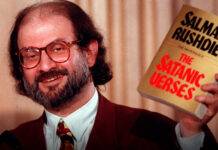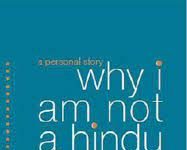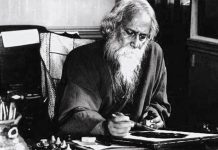Literature as a Tapasya: Chitta Ranjan’s Weltanschauung
Chitta Ranjan believed in tapasya as a mode of being in a world, where we are patiently labouring to take the existent reality to a new evolutionary height as well as make the ascent to a higher level of consciousness and a more dignified and qualitative relationship with the existent self, culture, and society. One of his inspiring interlocutors in Odia literature is the poet Gangadhara Meher, a weaver like Kabir, and the writer of a heart-touching poem on Sita of Ramayana called Tapaswinee. In one of his critical works, Chitta Ranjan calls Gangadhara a tapaswee (1983). One can look at the strivings of Chitta Ranjan from the same vantage point.
Literature as tapasya makes possible many new beginnings. First of all, it enables us to blossom, to grow, to become capable of more sharing, giving, and love. The tapasya of literature is a tapasya of self- transformation. In literature, we are usually familiar with experimentation with styles and techniques, but most important for Chitta Ranjan is to experiment with one’s life, to carry out manifold “experiments with truth,” as Gandhi, another creative interlocutor of our times with whom Chitta Ranjan carried out a lifelong dialogue, urges us to realize. But self- transformation and world-transformation go together. Literature must contribute to the transformation of the world – from its ugliness and many indignities, literature must help the world be a more dignified place. The institutional moorings of the world – its politics, economy, and education – must be changed in order for the dignity of the human person to be at the centre of our scheme of things. Literature must contribute to the building of such a world and the transformed consciousness that makes this possible.
As a tapasya of social transformation, literature has to take part in people’s social, cultural, and moral struggles. It has to give expression to people’s creativity and aspirations, including people’s deconstruction of the existing dehumanizing systems. For this, the poets and writers must write in the language of people without unnecessary ornamentation. The dominance of ornamental language as it happened in the era of Ritikavya of medieval literature, and as it happens in certain fields of modern poetry, is a sign of decadence for Chitta Ranjan. One of the animating chapters in Chitta Ranjan’s magnum opus Odia Sahityara Sanskrutika Bikashadhara [The Cultural Development of Odia Literature] is called “The Conflict Between Reeti and Preeti.” Chitta Ranjan is for life-affirmative love in literature, a love which gets expressed in the clarity of one’s language. Writing in a socially powerful language as an aspect of social conformity, whether it is Sanskrit in the medieval world or English in contemporary India, is an expression of our alienation from the vibrant links with the people around us.
But to write in the language of people requires courage. The hero of such courage for Chitta Ranjan is Sarala Das, the maker of Odia Mahabharata. In the fourteenth century, when poets were writing in Sanskrit, Sarala Das chose to write in Odia. This was a protest as well as a creative affirmation. Similar courage is shown by Achyutananda and the Panchasakhas – the five famous friends of the sixteenth-century Odisha: Balarama Das, Ananta Das, Yashovanta Das, Jagannatha Das, and Achyutananda Das – who refused to write in Sanskrit and translated many epics and puranas into Odia. Chitta Ranjan helps us to understand that the Panchasakhas were the people’s leaders and chose this wider calling for themselves, instead of the more secure one of being a court pundit. For Chitta Ranjan, as writers we must have the courage to be on the side of the people rather than sing ballads for the kings and queens and loiter in the corridors of power.
Chitta Ranjan believes that the written language in literature derives nourishment from the spoken language (Das 1982a). The debate on the written and the oral has had a contentious history and, recently, Derrida argued that while the written fixes and binds our thought, the oral gives unrestricted freedom to it. But Chitta Ranjan is not obsessed with the issue about the comparative significance of the written and the oral. His main point is that the users of the written must have the humility to realize that the written is nourished by the oral and the readiness to learn from it. Later, Chitta Ranjan’s meditation on language and literature went beyond the conventions of the written and the oral. For Chitta Ranjan, literature must be a mantra in life. Taking inspiration from Sri Aurobindo, another seeker who was a constant companion of Chitta Ranjan in his life’s pilgrimage in his last quarter of a century, Chitta Ranjan believed that the language of literature should be a language of mantra. It must have the elocutionary power to transform. Chitta Ranjan also suggested that alternative literature must have an alternative language because the existing language is inadequate for describing and expressing the horizon of emergence. Therefore, when Chitta Ranjan argued that we must write in the people’s language, it was not an exercise in populism alone. In the evolutionary unfoldment of a writer, there has to be moments when they present a new language to the people in order to describe the emergent world they envision, strive to create, or have created.For Chitta Ranjan, literature must have commitment, but this is not necessarily expressed through commitment to political parties and ideologies. As the noted sociologist Andre Beteille (1982) argues, commitment doesnot mean commitment to an ideological orthodoxy alone; it also refers to the moral commitments of the actors. Chitta Ranjan’s concerns are similar to Beteille but go further, as he urges us to realize the ontological depth of moral and social commitments. For Chitta Ranjan, one cannot be committed to society if one is not committed to oneself. But self-commitment here does not mean commitment to one’s ego-aggrandizement but to the calling of the universal self within us. Chitta Ranjan makes a distinction between ideology and devotion to an ideal life (Das 1992b). Ideal life is not just a romantic utopia for Chitta Ranjan but the design of an ideal relationship of dignity which one continuously seeks to realize in the life of the self, other, culture, and society.
However, what has happened to the devotion to an ideal life in post-independence India? Chitta Ranjan is pained by the death of the ideals in this period and looks at it as an era of Prabanchita Biplaba, a “Betrayed Revolution.” The Indian freedom movement wanted to realize both political freedom and social revolution. But after the realization of political freedom, the agenda of social revolution was hijacked by the powers that be. Chitta Ranjan condemns the writers of the country for so easily and willingly becoming a party to this political conspiracy. For Chitta Ranjan, the poets and litterateurs quickly forgot the dreams of the freedom movement and sang eulogies for the holders of power, even surpassing the court pundits of the medieval world. They forgot the language of tapasya, sraddha, social struggle, and social transformation. Thus, the so-called modern era in a field like Odia literature is for him one of decadence, in which the writers became clinically preoccupied with styles and techniques. As Chitta Ranjan writes: “the so-called modern movement in literature soon came to mean the movement for new styles and techniques, not often harping in a bizarre sort of way, on new lethargies and therefore also new eccentricities” (Das 1982a, 242). While “literature could have given leadership and provided an alternative,” it compromised and declared its “insolvency” (1982a, 245). Furthermore, “when there was this fundamental incapacity to face the real issues and the real privations, the writers ran away and took refuge in gimmicks and skills. One can say without exaggeration that in Odia poetry at least there was a regression to the reeti phase of its history in the seventeenth to eighteenth centuries where the poets of the courts overdid the structure of poetry to conceal the fact as it were that they had nothing more important to say. Thus, as far as range is concerned, the poets remained very closed and cornered in spite of the avowed modernity of their styles” (1982a, 243).
For Chitta Ranjan, literature in post-independence India should have been a literature of protest and seeking of new affirmations. The burgeoning body of postcolonial criticism has not really embodied this sensibility deep enough. Literature should have confronted the brutality of the postcolonial state and its dehumanizing configuration of power with love, courage, and sraddha. These days, critiques of modernity, under the rubric of varieties of postmodernism, are still confined to the safe institutional corridors of modernity, but Chitta Ranjan’s critique of modern literature is inspired by an identification with the pangs and hopes of ordinary people who have been victimized by the processes of modernization. In a poverty-stricken society such as India, modernization has been the other name of elite domination. In another context, liberation theologian and critic Felix Wilfred (1997) argues that the critique of modernity should be attempted, taking into account what processes of modernization and the condition of modernity have done to many of its victims. Chitta Ranjan’s critique of the modern phase of Odia literature is guided by similar concerns. Modern literature has forgotten that it is a dialogue with people and is a partner in their pangs, aspirations, and many strivings for a more dignified future.
The above passage has been excepted from the book ‘The Essays of Chitta Ranjan Das on Literature, Culture, and Society’ edited by Ananta Kumar Giri and Ivan Marquez. The book has been published by Cambridge Scholars Publishing.













